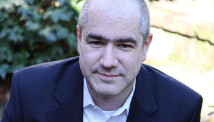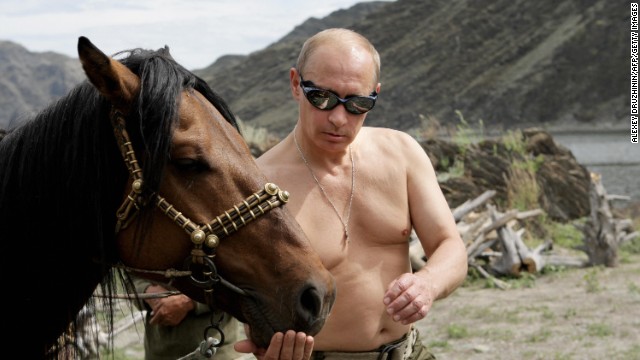Savvy authoritarians: Meet the modern strongmen
September 26, 2012 -- Updated 1136 GMT (1936 HKT)
STORY HIGHLIGHTS
- Dobson: Sophisticated authoritarians replacing old totalitarian regimes
- Fear, election-fixing, legislation are tools of the modern strongmen, Dobson says
- Despite their sophistication, methods of regimes like Putin's are wearing thin
- Dobson: Syria's Assad is reminder that some dictatorships still prefer a bloodbath.
Editor's note: William J. Dobson is the politics and foreign affairs editor for Slate and author of "The Dictator's Learning Curve: Inside the Global Battle for Democracy."
(CNN) -- Vladimir Putin always understood that the old ways would no longer do.
He had witnessed the
errors of 20th century dictatorship firsthand as a KGB agent stationed
in Dresden during the last years of the Cold War. The young Soviet
officer was shocked at how "totally invasive" the East German police
state's surveillance was of its own citizens.
In 2000, reflecting on
those years on the eve of his first term as Russia's president, Putin
said, "I only regretted that the Soviet Union had lost its position in
Europe, although intellectually I understood that a position built on
walls and dividers cannot last. But I wanted something different to rise
in its place. And nothing different was proposed."

William J. Dobson
More than a decade later,
something different has risen to replace the totalitarian models of
old. Modern strongmen are more sophisticated and cunning then their
twentieth-century predecessors.
These savvy
authoritarians eschew the most heavy-handed methods -- mass executions,
disappearances, brutal crackdowns -- as an extreme last resort. Instead,
subtle forms of coercion are preferred. Rather than have its activists
roughed up, a human rights organization is more likely to be shuttered
for fire-code violations.
These regimes are fluent
in the language of democracy and human rights, and may even establish
human rights commissions -- despite being the chief perpetrators of any
abuses. Laws are written in vague terms and then applied capriciously
against those who question the regime's ways.
And fear is always a
potent weapon. "My father used to say that he would rather live in a
dictatorship like Cuba," one Venezuelan activist told me. "At least
there you know if you criticized the government, they would put you in
prison. Here they rule through uncertainty."
Of course, elections are
de rigueur in modern dictatorships -- and not the absurd sham polls of
the Soviet Union that always left Brezhnev with 99 percent of the vote.
Today the ballot stuffing usually stops at 70 percent. Everyone
understands that it is better to appear to win a genuine election --
which means you need the opposition to win some votes -- than to
participate in a clear charade.
There is something
Darwinian about the way that authoritarianism has evolved. Because, in
many ways, it has never been harder to be a dictator.
In the past 20 years,
the democracy promotion business boomed. Many dictatorships lost their
chief lifeline with the collapse of the Soviet Union. The internet,
satellite communication, and smart phones make it incredibly difficult
for a regime to keep its worst crimes secret. In 1989, the Chinese
Communist Party tried to strong-arm CNN off the air before they mowed
down protesters on the roads leading to Tiananmen Square. If people
assembled in the square today, the regime's response would be captured
on a thousand iPhones.
In response to these
pressures, the smartest regimes did not close themselves off from the
world or seek to become the next North Korea. Police states hold no
appeal. Instead, they evolved.
In Russia, the Kremlin
has responded to protests by passing a raft of laws that enable the
authorities to squash activists with fines and prison sentences. In
Venezuela, Hugo Chavez has engineered the electoral rules with some of
the world's most sophisticated gerrymandering.
In Jordan, the
government has proposed one reform after another -- without ever curbing
the monarchy's true power. In China, the Communist Party altered its
social compact with its people, granting them greater personal freedoms
in exchange for keeping tight control of their political rights.
In Malaysia, the ruling
party promised to relax its rule -- right before it banned street
demonstrations. When people responded in protest, Prime Minister Najib
Razak referred to them as a "sign of a mature democracy." It was the
perfectly tailored reply of the modern authoritarian.
In a world of unfettered
information and open borders, we should understand authoritarian
regimes for what they are. They are not the outgrowth of a certain
culture, history, or level of economic development. Rather, they are
conscious, man-made projects that must be carefully built, polished, and
reinforced.
But it makes no
difference if a regime has developed innovative strategies, political
tools, or social controls if it doesn't use them. No matter how
sophisticated these regimes may be, some are finding that their methods
are wearing thin.
Since the announcement
of Putin's return for a third presidential term 12 months ago, Putin and
the Kremlin have demonstrated a remarkably tin ear. The trial of Pussy
Riot is just the most recent example where the regime has appeared
flatfooted -- unnecessarily politicizing issues that make it appear
overweening and abusive.
Putin has now lost the
support of much of the urban middle class and young people -- a group
that always polled highly for Putin -- and his ruling party's brand is
in shambles. As one activist told me, "It is no longer cool to be
pro-Putin." That is an important loss for a regime that banks on the
apathy of its citizens.
In Venezuela, Chavez's
prospects are in question. The past month has been his worst
politically, with a string of disasters and accidents that underline how
much the state has crumbled under his watch. Workers -- if ever he had a
core constituency -- recently booed El Comandante at a rally. Although
his control of the media, oil wealth, and state machinery keeps him
formidable, it is increasingly clear (to Venezuelans of all political
stripes) that the country is reaching a breaking point.
Of course, Syria offers a
daily reminder that some dictatorships still opt for a bloodbath. In
1982, Hafez Assad brutally ended an uprising in the Syrian city of Hama.
It is estimated that between 10,000 and 40,000 Syrians were slaughtered
in a month. Bashar Assad chose to follow his father's example in
crushing his own rebellion. The difference is that in 1982 the elder
Assad could be confident that he could perpetrate his crimes with
impunity. His son's regime looks less tenable by the day. No matter what
happens, Assad's government will never win back its legitimacy.
Apparently Assad never learned that the old ways would no longer do.
The opinions in this piece are solely those
of William J. Dobson. "The Dictator's Learning Curve: Inside the Global
Battle for Democracy" is published by Harvill Secker.

 Dobson says that under Vladimir
Putin, the Russian government has passed a raft of laws that enable the
authorities to squash activists with fines and prison sentences.
Dobson says that under Vladimir
Putin, the Russian government has passed a raft of laws that enable the
authorities to squash activists with fines and prison sentences.
ไม่มีความคิดเห็น:
แสดงความคิดเห็น